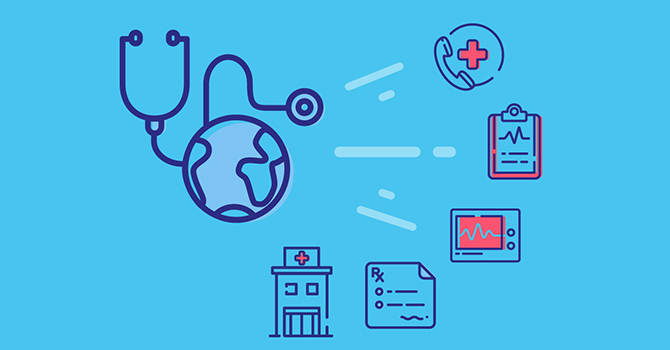Comprehensive Healthcare RCM for Improving Individual Billing and Settlements
Comprehensive Healthcare RCM for Improving Individual Billing and Settlements
Blog Article
Discover Just How Medical Care RCM Processes Transform Administrative Tasks Into Seamless Procedures
In the ever-evolving landscape of medical care, Income Cycle Management (RCM) procedures have arised as an essential force in transforming administrative jobs into smooth procedures. By utilizing cutting-edge technology and fine-tuned approaches, RCM uses an advanced approach to taking care of client enrollment, billing, and claims handling. These advancements not only minimize errors and boost efficiency but additionally accelerate cash money circulation and boost client complete satisfaction. Nonetheless, what lies beneath the surface area of this transformative shift? What complex mechanisms and strategies are employed to make sure such smooth assimilation? The solution to these inquiries are vital for understanding the future of health care administration.
Understanding Healthcare RCM
Revenue Cycle Administration (RCM) in healthcare is an essential procedure that makes sure the economic wellness of clinical organizations by overseeing the entire lifecycle of client service revenue. It integrates various administrative and medical functions, beginning from the preliminary scheduling of a medical appointment to the eventual collection of settlement for solutions provided. Healthcare RCM. RCM is crucial in taking care of the intricacies of payment and reimbursements, ensuring that doctor obtain settlement for their services effectively and precisely
A detailed understanding of RCM includes recognizing the numerous elements that make it successful. Key facets consist of client scheduling, insurance coverage verification, cost capture, claim submission, and payment uploading. Each of these aspects requires meticulous focus to information and robust systems to minimize mistakes that can cause profits loss. Moreover, RCM is not entirely about economic collections; it likewise aims to improve client contentment by reducing invoicing mistakes and enhancing transparency.
The effectiveness of RCM is contingent upon the smooth assimilation of innovation and human resource knowledge. Using advanced software program services makes it possible for healthcare organizations to automate repetitive jobs, thus minimizing management burdens. Furthermore, trained workers are crucial in navigating regulatory demands and payer plans, ensuring compliance and enhancing income recuperation.
Streamlining Client Enrollment
Simplifying client enrollment is a fundamental step in enhancing the performance of healthcare income cycle administration. It includes enhancing the first communication in between individuals and medical care carriers to guarantee a smooth information collection process. Key components include the precise capture of individual demographics, insurance coverage confirmation, and approval purchase. By digitizing these procedures with integrated electronic health and wellness documents (EHR) systems, medical care centers can reduce errors, minimize documentation, and accelerate individual throughput (Healthcare RCM).
Automated systems help in validating insurance policy eligibility in real-time, which not only lowers administrative concerns yet likewise enhances person fulfillment by stopping unforeseen billing issues. Furthermore, pre-registration procedures allow patients to total types on-line prior to their browse through, minimizing wait times and enabling personnel to concentrate on more complicated tasks. This aggressive method ensures that all needed information is collected and confirmed prior to treatment is offered, thus preventing delays in subsequent billing and declares procedures.
Training personnel to use these systems efficiently is crucial. It guarantees that information access is regular and precise, fostering a seamless transition from individual enrollment to various other revenue cycle procedures. Ultimately, improving person registration lays the foundation for a more efficient, patient-centered health care distribution model.
Efficient Billing Solutions
Effective payment solutions are indispensable to maximizing medical care revenue cycle monitoring. They work as the backbone for guaranteeing timely and accurate monetary transactions between clients, health care companies, and insurance policy companies. By leveraging innovative modern technology and streamlined procedures, healthcare facilities can considerably minimize invoicing mistakes, decrease hold-ups, and boost capital. Carrying out durable invoicing systems helps with exact cost capture, guaranteeing all services rendered are made up and billed appropriately. Automation devices can integrate payment data with medical records, preventing and lowering inconsistencies insurance claim rejections.
Additionally, effective billing remedies equip medical care suppliers to supply clear rates and invoicing details to individuals, promoting trust and enhancing patient satisfaction. Real-time invoicing systems allow medical care staff to supply immediate responses on person eligibility and out-of-pocket expenses, improving the total person experience. These options additionally permit smooth integration with digital health records (EHR), making certain that billing and professional details remain in sync, reducing administrative problems on healthcare providers.
Incorporating effective invoicing solutions into the profits cycle management framework not just enhances operational effectiveness however additionally enhances monetary efficiency. By lessening mistakes, speeding up payment cycles, and improving person communication, medical care organizations can focus much more on providing high quality treatment while maintaining financial sustainability.
Optimizing Claims Processing

In the world of medical care revenue cycle management, optimizing insurance claims processing is critical for keeping economic health and wellness and functional performance. A structured cases procedure lessens the time in between solution shipment and payment, therefore enhancing money flow and decreasing the likelihood of mistakes. Reliable cases refining begins with exact paperwork and coding, which are important to guarantee that claims are sent without inconsistencies that could lead to rejections or hold-ups.
Leveraging innovative technology, such as automated cases management systems, can significantly enhance the performance of this procedure. These systems are developed to automate repeated tasks, track cases with each phase, and flag prospective problems early. This not only lowers the administrative burden on personnel yet likewise increases the precision of submissions by reducing human error.

Enhancing Income Collection

Moreover, rejection administration plays an important role in taking full advantage of revenue collection. Determining patterns in insurance claim rejections, comprehending source, and carrying out restorative activities can dramatically decrease reoccuring problems, thus improving capital. Suppliers ought to buy durable analytics tools that assist in thorough reporting and evaluation, permitting them to attend to and correct rejection trends without delay.
Timely follow-up on impressive claims is one more crucial aspect of earnings collection. Establishing a methodical strategy to monitor and go after aged accounts guarantees that no income is left unclaimed. Using dedicated staff or automated systems to track these insurance claims can improve performance and make certain constant money inflows.
Verdict
Health Care Income Cycle Monitoring (RCM) procedures dramatically improve administrative effectiveness by incorporating sophisticated modern technology and human expertise (Healthcare RCM). The automation of person enrollment, payment, and asserts handling speeds up and minimizes errors capital, inevitably enhancing individual complete satisfaction through real-time insurance policy verification and transparent billing. By guaranteeing seamless functional circulation, RCM enables health care suppliers to prioritize quality treatment while making best use of earnings healing and maintaining economic stability, thus transforming management jobs into reliable, streamlined operations
Revenue Cycle Monitoring (RCM) in health care is a vital process that makes certain the monetary health of clinical institutions by supervising the entire her response lifecycle of person solution earnings.Streamlining individual enrollment is a fundamental action in boosting the performance of healthcare revenue cycle monitoring. It includes maximizing the preliminary interaction in between individuals and health care companies to ensure a smooth information collection procedure.Additionally, efficient payment options equip medical care companies to supply transparent rates and payment info to individuals, fostering trust fund and improving client fulfillment. Real-time payment systems make it possible for healthcare personnel to supply instant responses on client eligibility and out-of-pocket expenses, improving the total person experience.
Report this page